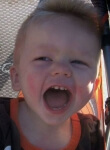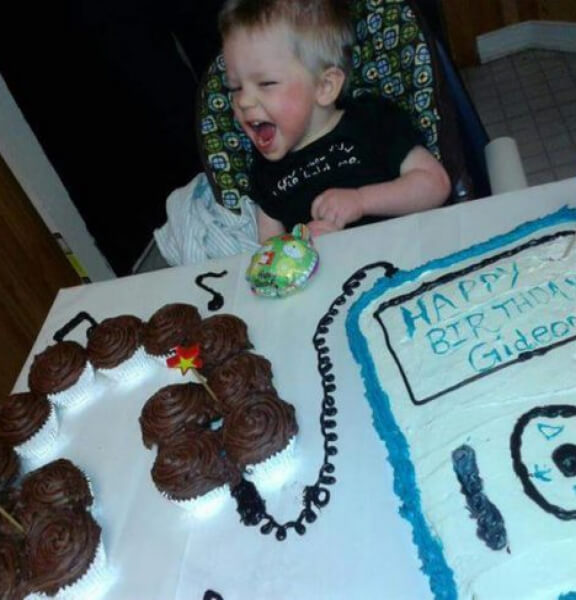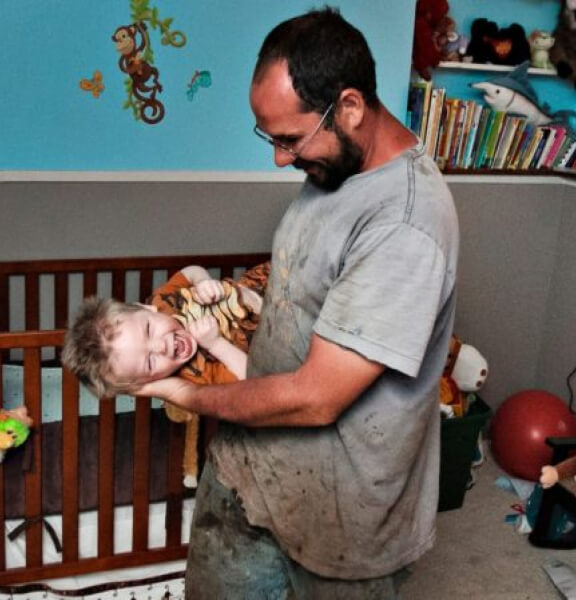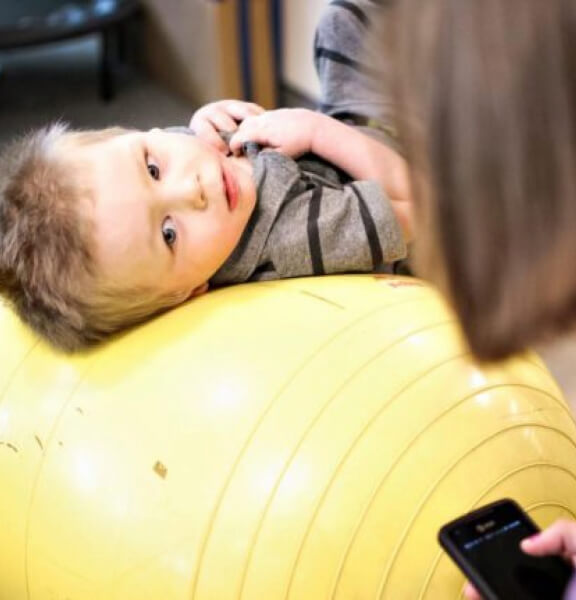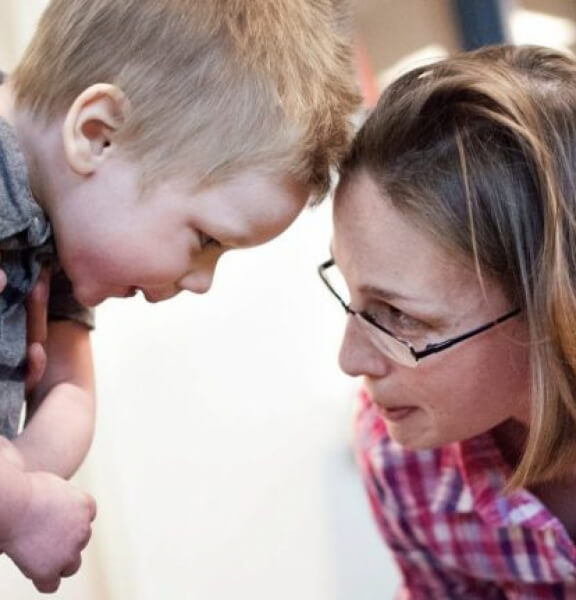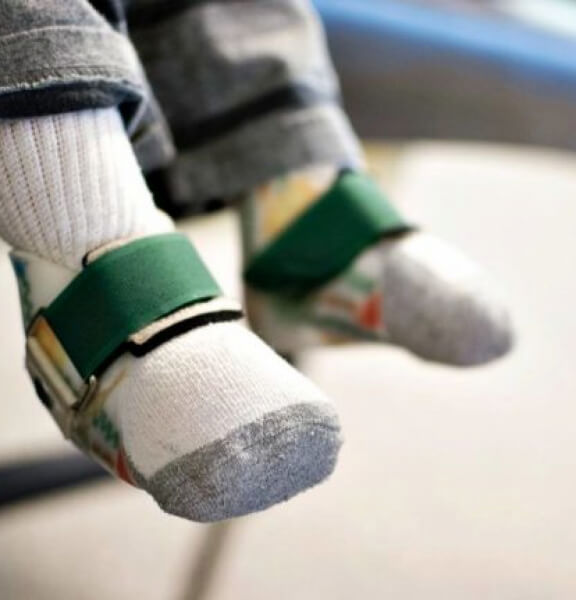Gideon Laatsch
August 16, 2011
How could someone forget their child? I asked myself this every summer as I would see story after story of children dying in hot vehicles. I told myself this only happens to bad parents. Until it happened to my family.
My husband forgot our son on August 16, 2011. The day started as most did; we got up, I got Gideon ready to go to daycare, kissed my husband goodbye, and watched him load him in the car. The big difference that day was that I was staying home to unpack instead of going to work. There are no answers why he turned that day instead of going straight to daycare. Maybe because I was home, maybe because he had fallen out of his routine of taking him, maybe because Gideon fell asleep. But somehow, Kaleb forgot his son, his pride and joy, was riding in the backseat. He went on autopilot straight to work.
8 hours later, I went to pick Gideon up from daycare. The babysitter gave me a funny look and said, “”he’s not here”” then walked to the back room where he usually slept. At first I thought she was joking, and then panic set in. The phone call to my husband, the drive to his work. Driving up to see him pulling my beautiful little boy out of his truck. My bouncing, giggly boy was limp, lethargic, and barely breathing. It seemed a lifetime for the ambulance, an eternity to the hospital. I found out later that his temperature when he came in was 108′, which is past deadly. My son owes his life to the amazing people at Campbell County Memorial. He was cooled, stabilized and life-flighted out within the hour.
The six hour drive to Denver Children’s was agonizingly long; hours spent praying and wondering why and how. We didn’t even know if he was going to still be alive when we got there. Amazingly he was, but doctors were very grim. We were told he wouldn’t make it through the night, then the day. We were told of organ failure, severe brain damage. We were given the quality of life speech, tried to prepare for the worst when he was taken of off ventilation. Then he surprised us all. My strong willed little boy was fighting, he survived.
– Sarah Laatsch (Gideon’s Mother)
A father’s days
by Nathan Payne, Gillette News Record
There is only one person who hasn’t forgiven Kaleb Laatsch for the biggest mistake of his life. And that person likely never will.
It’s not his father, his wife or a judge.
Laatsch spends most days alone with his thoughts in the oil field working as a roustabout, and he gets little escape from the memories. The thoughts of what is done and what could have been pave the long roads of rural Campbell County while the skilled jack-of-all trades drives from oil well to oil well fixing other people’s broken parts.
Despite his skilled hands, there is one thing he can’t fix.
His son.
– – –
Pulling away from home to drive the 30 miles to work each morning is no escape.
Laatsch often leaves before his family wakes, trying to drown his thoughts with the sound of the radio inside his pickup. Less than 3 feet from his right shoulder is where it happened. The red Solo cup from which he sips coffee is no different than the one that was in his cup holder that morning in August 2011.
It took months before he could set foot inside the white pickup. It still isn’t easy. But vehicles cost money, and Laatsch is more concerned about providing for his family.
The day he hurt Gideon often replays in Laatsch’s head in a cruel rendition of Monday-morning quarterbacking. He mulled the order of events while his son was hospitalized, while he stood trial for child endangerment and often thinks about it still today.
He hopes for an answer, but finds only grief.
During a morning like any other, Laatsch kissed his wife, Sarah, grabbed his coffee, loaded 9-month-old Gideon into his pickup and headed for work. It was a routine he had gone through hundreds of times.
Sometime early in the trip, Gideon fell asleep and Laatsch’s brain continued the drive to work on autopilot.
What happened next was unthinkable.
“I thought it couldn’t happen to me, because I’m a good parent,” he said. “I remember dropping him off at day care.”
Laatsch drove straight to work, jumped out of his pickup, got into his work truck and drove out into the field.
The memory of dropping Gideon at day care is vivid, but false.
It is a lapse in memory that neurologists don’t completely understand, but one that kills dozens of children each year. Four children left in cars by accident have died in the first half of this year, according to statistics collected by San Francisco State University.
It happens to doctors, lawyers, garbage men and school bus drivers. It happens to men and to women. It happens to the rich and the poor.
“You can add roustabout to that list,” Laatsch said clenching his fist around the steering wheel inside his pickup.
When Sarah went looking for Gideon at day care eight hours later, he wasn’t there.
She called her husband in a panic.
He was just a few blocks from the parking lot where his pickup sat all day.
When Laatsch got there, he threw open the doors to find Gideon, clinging to life, alive, but barely.
The once bright baby boy was pale. His eyes were blank, his organs were failing and he was limp. He was almost gone.
Laatsch cradled him; the shock of what he had done took hold of his insides.
Minutes later Sarah reached her son and husband. She grabbed her baby from his arms and began to strip his clothes off. His body temperature had reached 108 degrees, above the threshold when death becomes imminent.
Inside an hour, Gideon was headed via air ambulance to Denver. Doctors in Gillette thought he might be mortally wounded, but weren’t willing to give up the fight. He needed attention they could not provide.
The Laatschs were told to prepare to say goodbye to their baby boy.
They stuffed clothes into a bag, grabbed Gideon’s favorite toys and began an agonizing five-hour drive to Denver, not knowing whether Gideon would still be alive when they arrived.
He was suffering from hyperthermia, something that 32 children died from in the United States in 2012 after being left in vehicles on hot days.
Police investigators looking for some fault kept the couple from flying with their son. They interviewed the pair, asked Kaleb to take drug tests and confiscated Sarah’s keys as evidence.
They found nothing.
Along the way, the Laatschs both stewed about how Kaleb could have made such a huge mistake. About how a man who lives for his son, a man who couldn’t wait to start a family, could leave his boy trapped inside a hot pickup all day.
They cried tears that eventually would run out.
There are only so many tears a man can cry before they stop coming and he must stand up to reality.
– – –
It took Sarah Laatsch months to forgive her husband.
She knew he would never intentionally hurt their son, yet for some time, she was angry about the mistake.
Sarah would become enraged when he would forget to change a load of laundry from the washer to the dryer. And she once yelled at a man in a convenience store who read a newspaper headline and commented that Laatsch should be locked up for life. The man didn’t know her and she didn’t know him, but it didn’t matter.
Somewhere along the way, she realized that her husband’s healing has been forever tied to Gideon’s recovery. The man she fell in love with, a man who never seemed unhappy, had faded.
“Kaleb became serious,” she said.
The wounds to Laatsch’s spirit mirror the physical damage done to his son.
Then a couple of months after bringing Gideon home, it happened.
The once-happy baby boy who had been reduced to what seemed to be a blank shell of what he once had been, giggled at his mother.
“That’s when I knew he came back,” she said. “That’s when I knew everything would be OK.”
It is all she needed, the reassurance that Gideon would recover his spirit.
Sarah frantically recorded Gideon’s giggles that day, doing everything she could to coax the soft laughter out of her son. A fleeting glimpse of her boy; it was enough.
She sent the recording to Laatsch that day.
While driving through the oil field last week, Laatsch flipped his cellphone open and closed with an oil-covered thumb and forefinger. The phone contains a short library of recordings of milestones in Gideon’s recovery sent to him by Sarah. He played the giggling aloud over the drone of the decade-old diesel engine under the hood of his pickup.
It is enough to keep him going during the days when the thoughts become too intense. It is a reminder that his son still is fighting and so, too, should he.
There are memories that the 28-year-old father of two sometimes wishes would subside. Yet he often clings to them, punishing himself in the place of the sentence a judge refused to impose.
He sometimes has to stop in the field, far from town, to throw rocks at pumping units when his frustration boils over.
It is a pastime he needed after being convicted by a jury of misdemeanor child endangerment. And he needed it when prosecutors asked for the maximum sentence of one year in jail for the crime.
“It would serve nobody’s interest to put Mr. Laatsch in jail,” Circuit Judge Terrill R. Tharp said during an April sentencing hearing. “He is serving a life sentence at this moment.”
The thoughts fill his days working alone and confront him face-to-face at home.
“I get constantly reminded of the worst mistake of my life,” he said, glancing out the window of his work truck toward the long, rolling hills of Wyoming. “I just do anything any father would do — I just keep working and trying to keep my family together.”
Sarah realized that her anger over what happened was doing nothing to help her family cope.
She spends most days looking for the little victories, the small steps Gideon makes all the time during therapy or at home while she works with him.
Gideon is far from where he would be if not for the accident.
Each day is a struggle for a step, or a smile, or a giggle.
He will have to re-learn everything from how to walk to how to chew food. He can’t see well because of damage to the nerves that connect his brain to his eyes, but he hears well and loves music. The Laatschs hope Gideon will one day regain many of the things he has lost, but will be happy with even the little improvements.
“Now, I wouldn’t know him any other way,” Laatsch said peeking at a photo of Gideon on the screen of his cellphone.
What could have been doesn’t matter. It can’t.
– – –
On a recent Friday night, while his friends were enjoying themselves at a demolition derby, Kaleb worked late into the evening with his father, Lee, to replace a water pump at a well site.
The things people have said about his son anger Lee.
“You hope that your son will be a better father than you were,” he said, choking back a tear, a 36-inch pipe wrench hanging in his hands. “And my son is.”
He quickly looked back to his work, wiping his eyes with his shirtsleeve.
People have said damning things to Sarah, they have made insensitive comments in front of the family and they have even treated Kaleb with malice when they realize who he is.
Lee was in Denver during the days after the accident. He is one of the few people who was willing to offer his son a hug, to tell him things would be OK.
He watched Kaleb struggle with decisions that would determine the future of his family.
Laatsch doesn’t appreciate some of the doctors he met in late August 2011 while watching Gideon though a half-inch of hard plastic, tubes and wires running from the boy. He didn’t like the things he heard them say as he watched his first-born son linger in the twilight of life.
“You know your kid is hurt and there’s nothing you can do to make him feel better,” Laatsch said. “Those are the days that sucked.”
Some of the doctors told the couple not to expect Gideon to survive the first night. Others said not to hope for more than a week.
Then came one who seemed to be saying it would be OK if the couple decided to pull the plug and allow their 9-month-old son to die when the respirator stopped breathing for him. The neurologist told Laatsch it was a matter of “quality of life.”
“‘For who?’ I asked him,” Laatsch said. “For me? I told them that I couldn’t.”
Today, Sarah stays home with Gideon. His constant schedule of therapies is a full-time job. Kaleb often works six or seven days a week.
Gideon stopped having constant seizures some time ago. He hasn’t needed a feeding tube since a couple of months after arriving home. Still, he is a long way from other kids his age.
“I hate the word normal,” Sarah said.
Laatsch looks back on the decision to keep fighting for Gideon — no matter the circumstances — and smiles. The decision to go against doctors’ advice is one he would never reverse.
“If he was willing to fight still, so was I,” he said. “And he still is, so I still am.”
– – –
Rare is the night that Laatsch isn’t home to tuck Gideon into bed.
He works long days in the field, often 14 or 16 hours in a row to help support his family, to provide security for his two sons and wife.
As his pickup growled its way across the prairie toward home, he called Sarah to let her know he was on his way. She said dinner was ready and Gideon was waiting for his bedtime dance.
For a moment, after parking the black work pickup along the curb in front of his house, he paused.
“I’ll never forgive myself,” he said, looking toward the front door of his house. “How could I?”
Gideon refuses to sleep without Kaleb tucking him into bed after a special dance. It often is the first thing Kaleb does when he walks through the front door of his family’s modest home late at night. No matter how tough his day has been, no matter how tired he is, Kaleb wraps his son in his arms and holds him tight for a few moments before laying him down to sleep.
Once in his father’s arms, Gideon melts, and his head immediately tucks into Kaleb’s shoulder. At the same time, the tension of the day falls from Kaleb’s brow. He will wait until after Gideon is sound asleep before he eats dinner.
Hunger or fatigue can wait.
Gideon comes first.
https://www.facebook.com/sarahlaatsch/posts/613834725296187
Donate in Honor of Gideon
